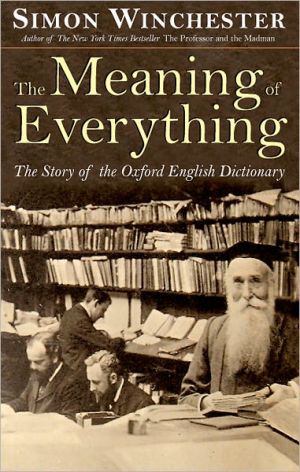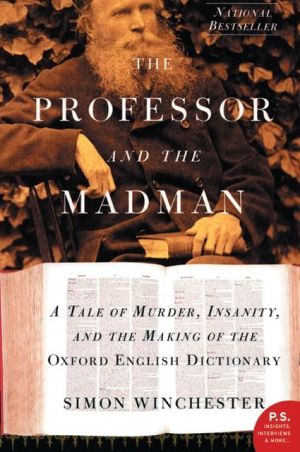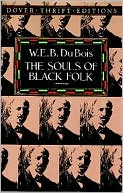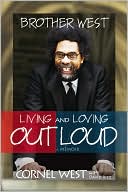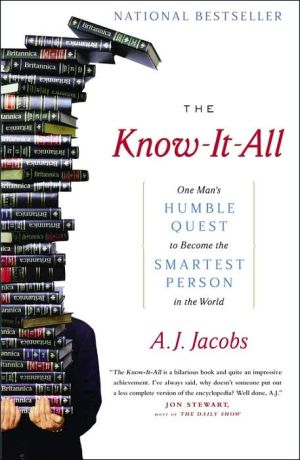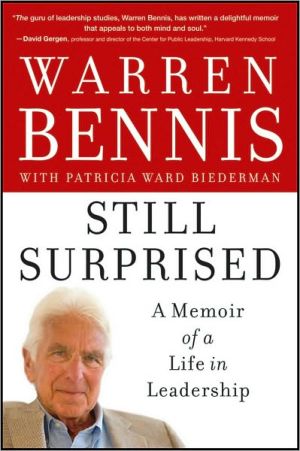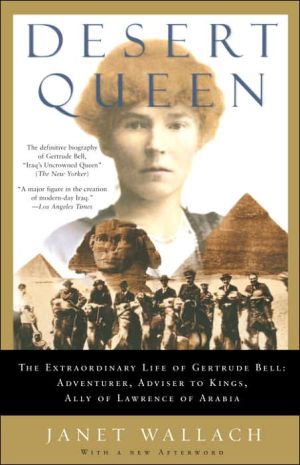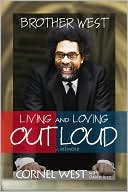Meaning of Everything: The Story of the Oxford English Dictionary
From the best-selling author of The Professor and the Madman, The Map That Changed the World, and Krakatoa comes a truly wonderful celebration of the English language and of its unrivaled treasure house, the Oxford English Dictionary. Writing with marvelous brio, Winchester first serves up a lightning history of the English language -- "so vast, so sprawling, so wonderfully unwieldy" -- and pays homage to the great dictionary makers, from "the irredeemably famous" Samuel Johnson to the...
Search in google:
From the best-selling author of The Professor and the Madman, The Map That Changed the World, and Krakatoa comes a truly wonderful celebration of the English language and of its unrivaled treasure house, the Oxford English Dictionary. Writing with marvelous brio, Winchester first serves up a lightning history of the English language--"so vast, so sprawling, so wonderfully unwieldy"--and pays homage to the great dictionary makers, from "the irredeemably famous" Samuel Johnson to the "short, pale, smug and boastful" schoolmaster from New Hartford, Noah Webster. He then turns his unmatched talent for story-telling to the making of this most venerable of dictionaries. In this fast-paced narrative, the reader will discover lively portraits of such key figures as the brilliant but tubercular first editor Herbert Coleridge (grandson of the poet), the colorful, boisterous Frederick Furnivall (who left the project in a shambles), and James Augustus Henry Murray, who spent a half-century bringing the project to fruition. Winchester lovingly describes the nuts-and-bolts of dictionary making--how unexpectedly tricky the dictionary entry for marzipan was, or how fraternity turned out so much longer and monkey so much more ancient than anticipated--and how bondmaid was left out completely, its slips found lurking under a pile of books long after the B-volume had gone to press. We visit the ugly corrugated iron structure that Murray grandly dubbed the Scriptorium--the Scrippy or the Shed, as locals called it--and meet some of the legion of volunteers, from Fitzedward Hall, a bitter hermit obsessively devoted to the OED, to W. C. Minor, whose story is one of dangerous madness, ineluctable sadness, and ultimate redemption. The Meaning of Everything is a scintillating account of the creation of the greatest monument ever erected to a living language. Simon Winchester's supple, vigorous prose illuminates this dauntingly ambitious project--a seventy-year odyssey to create the grandfather of all word-books, the world's unrivalled uber-dictionary. William F. Buckley Simon Winchester's The Meaning of Everything tells the story of the Oxford English Dictionary. It is teeming with knowledge and alive with insights. Winchester handles humor and awe with modesty and cunning. His devotion to the story is the more eloquent for the cool-handedness of its telling. His prose is supremely readable, admirable in its lucid handling of lexicographical mire.
AcknowledgementsixList of IllustrationsxiiProloguexv1.Taking the Measure of It All12.The Construction of the Pigeon-Holes463.The General Officer Commanding724.Battling with the Undertow975.Pushing through the Untrodden Forest1346.So Heavily Goes the Chariot1607.The Hermit and the Murderer--and Hereward Thimbleby Price1868.From Take to Turn-down--and then, Triumphal Valediction216Epilogue: And Always Beginning Again238Bibliography and Further Reading251Index254Picture Acknowledgements260
\ William F. BuckleySimon Winchester's The Meaning of Everything tells the story of the Oxford English Dictionary. It is teeming with knowledge and alive with insights. Winchester handles humor and awe with modesty and cunning. His devotion to the story is the more eloquent for the cool-handedness of its telling. His prose is supremely readable, admirable in its lucid handling of lexicographical mire.\ \ \ \ \ Publishers WeeklyWith his usual winning blend of scholarship and accessible, skillfully paced narrative, Winchester (Krakatoa) returns to the subject of his first bestseller, The Professor and the Madman, to tell the eventful, personality-filled history of the definitive English dictionary. He emphasizes that the OED project began in 1857 as an attempt to correct the deficiencies of existing dictionaries, such as Dr. Samuel Johnson's. Winchester opens with an entertaining and informative examination of the development of the English language and pre-OED efforts. The originators of the OED thought the project would take perhaps a decade; it actually took 71 years, and Winchester explores why. An early editor, Frederick Furnivall, was completely disorganized (one sack of paperwork he shipped to his successor, James Murray, contained a family of mice). Murray in turn faced obstacles from Oxford University Press, which initially wanted to cut costs at the expense of quality. Winchester stresses the immensity and difficulties of the project, which required hundreds of volunteer readers and assistants (including J.R.R. Tolkien) to create and organize millions of documents: the word bondmaid was left out of the first edition because its paperwork was lost. Winchester successfully brings readers inside the day-to-day operations of the massive project and shows us the unrelenting passion of people such as Murray and his overworked, underpaid staff who, in the end, succeeded magnificently. Winchester's book will be required reading for word mavens and anyone interested in the history of our marvelous, ever-changing language. (Oct.) Forecast: Winchester could have a second hardcover bestseller this year with this, boosted by a seven-city author tour. Copyright 2003 Reed Business Information.\ \ \ Forbes MagazineWho would have thought the story of a dictionary could be so absorbing? But this is no ordinary dictionary--and, as this book makes clear, English is no ordinary language. The epic idea of the Oxford English Dictionary--to find every word in the English language--was typical of the Victorian era, a time when dazzling inventions and seemingly impossible projects were pursued. No other dictionary, not even Samuel Johnson's famous one, had ever come close. The goal was to give not only the definitions of a word but also, in effect, that word's biography, chronicling its various uses from its origin to the present. No one had any idea the project would take nearly seven decades to complete. (16 Feb 2004)\ —Steve Forbes\ \ \ \ \ KLIATTWinchester's witty, humorous book celebrates the world's most authoritative compendium on English words and idioms from the emergence of the language from Anglo-Saxon or Old English. The text is a worthy companion piece to Winchester's best-selling biography, The Professor and the Madman (1998). He follows the history of the English language with a salute to forerunner linguists Samuel Johnson and Noah Webster and to the contributors who volunteered literary research and summaries of each word's beginning and acquired meanings through the medieval, Renaissance, and modern eras. The immense five-decade task required the organizational skills of scholarly geologist James Murray, the editor-in-chief who hired experts like Anglo-Saxon specialist J.R.R. Tolkien, Civil War surgeon William Chester Minor, the eccentric Frederick James Furnivall, and a clutch of lexicographers at the Ashmolean Library to provide vision and accuracy in assuring dictionary users the most fastidious examination of every word in the language. Extending to 15,490 pages and 22 volumes, the OED followed an idiosyncratic entry style that Winchester explains in the epilogue with a two-page contrast to earlier works. This volume is sure to fire the intellectual curiosity of word mavens. KLIATT Codes: A—Recommended for advanced students and adults. 2003, Oxford Univ. Press, 259p. illus. bibliog. index., Ages 17 to adult. \ —Mary Ellen Snodgrass\ \ \ \ \ Library JournalWinchester celebrates the 75th anniversary of the OED by producing a remarkable account of the men who shaped the venerable dictionary, from Samuel Johnson, whose earlier dictionary established the standard; to Dean Trench, who presented a paper championing the need for a new dictionary; to various flamboyant characters, such as William Chester Minor, a word collector who worked from a mental institution and the "madman" in Winchester's The Professor and the Madman; the eccentric and disorganized Frederick James Furnivall; W.J.E. Crane, so ornery that lawyers were needed to force him not to burn his collection of O-words; James Murray, who though not formally educated was nevertheless most responsible for seeing the project through; and others. Winchester wonderfully commemorates this monumental record of English and ultimately produces an inspired story of conflict, madness, genius, and inspiration so amusing that at times it reads like fiction-but it isn't. Highly recommended for academic and public libraries.-Carolyn M. Craft, Longwood Univ., Farmville, VA Copyright 2003 Reed Business Information.\ \ \ \ \ Kirkus ReviewsThe conception, gestation, and birth of the world’s most comprehensive and authoritative dictionary. Winchester (Krakatoa, p. 220, etc.) returns to territory he first excavated in The Professor and the Madman (1998), which told the stories of OED editor James Murray and his brilliant assistant, William Chester Minor, incarcerated for murder and madness. Here, the author deals only briefly with Minor near the end and focuses instead on the brilliant, dedicated, even obsessed men and women who created the dictionary despite war and illness, insanity and insolvency, and the sometimes vicious politics of publishing and scholarship. Winchester begins in 1928 as the final pages were published of a work that began with the volume A to Ant in 1884. Many notable contributors never lived to see the completed dictionary, but many others attended the grand celebratory dinner, among them J.R.R. Tolkien, who in 1919 had worked on the project and was remembered for his struggles with the difficult word "walrus." (Later, he would help the OED define "hobbit.") Winchester pauses for a few chapters to remind us of the story of the English language—remember those pesky Angles, Saxons and Jutes?—and to sketch the history of dictionaries. By the third chapter, we meet the tale’s giant: James Murray, who signed on as editor in 1879 and died in 1915 while working on T. Winchester also profiles gadflies Benjamin Jowett, and Philip Lyttelton Gell, who harried the deliberate and meticulous Murray. Most interesting, of course, are the flotsam and jetsam that the author displays. "Zyxt" is the final word in the dictionary; "black" took three months of nonstop work; the first installment sold for 12shillings and 6 pence; editor Henry Bradley could read a book upside down; the next published edition may run to 40 volumes. A magnificent account, swift and compelling, of obsession, scholarship, and, ultimately, philanthropy of the first magnitude. (30 b&w illustrations, not seen)\ \ \ \ \ From the Publisher"Teeming with knowledge and alive with insights. Winchester handles humor and awe with modesty and cunning. His devotion to the story is the more eloquent for the cool-handedness of its telling. His prose is supremely readable, admirable in its lucid handling of lexicographical mire."--William F. Buckley, New York Times Book Review\ "The extraordinary story of the making of the Oxford English Dictionary is a subject perfectly suited to Winchester's magpie mind.... Winchester's account is an affectionate and frankly partisan study of the making of a great dictionary. It is also an offbeat portrait of an extraordinary society."--Robert McCrumm, Los Angeles Times\ "Devastatingly brilliant.... Fascinating, witty, extremely well-written.... Winchester makes words exciting. He obviously loves them."--Rochelle O'Gorman, The Boston Globe\ "Winchester brings to life the trials and tribulations of creating the OED, particularly the never-dull personalities of those who were involved. Moreover, he delightfully, admiringly gives us an appreciation of the wonderfully adaptive, ever-expanding English language.... A story that could have been stultifyingly dull is fascinatingly told, with a verve and reverence for the English language that would have won huzzahs from Shakspere (Murray's favored spelling) himself."--Forbes Magazine\ "As inspiring as it is informative, Simon Winchester's history of what it took to assemble the first edition of the Oxford English Dictionary is both a dazzling detective story and a poignant group portrait. A must-read for every language lover."--Seattle Times\ "An inspired story of conflict, madness, genius, and inspiration so amusing that at times it reads like fiction--but it isn't."--Library Journal (starred review)\ "Like Longitude...a story of extraordinary endurance."--Clive Davis, The Wilson Quarterly\ "Winchester tells the story with great verve in an easy-going, anecdotal style that's delectably readable."--Christian Science Monitor\ "Full of engaging characters and incidents."--Wall Street Journal\ "Winchester has no peer at illuminating massive and complex endeavors through the quirks and foibles of the brilliant and powerful personalities who carry them out."--Chicago Sun Times\ "A magnificent account, swift and compelling, of obsession, scholarship, and ultimately, philanthropy of the first magnitude."--Kirkus Review (starred review)\ \ \
